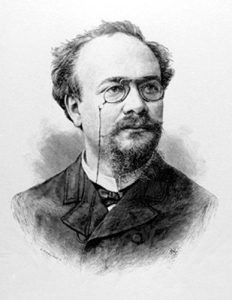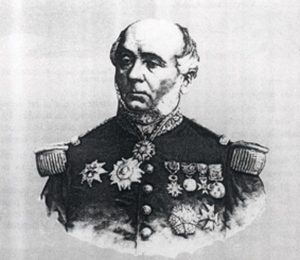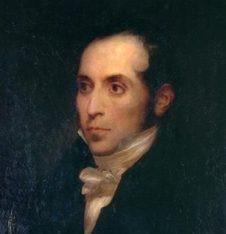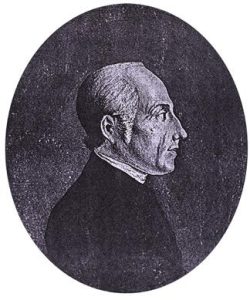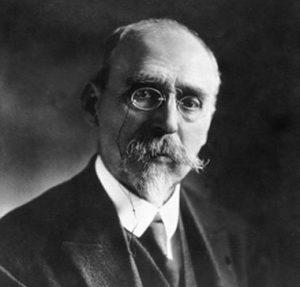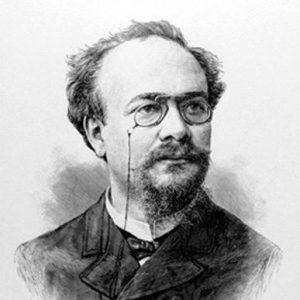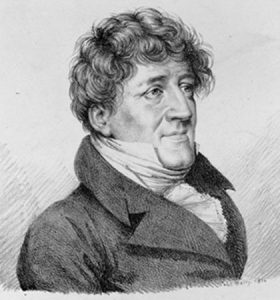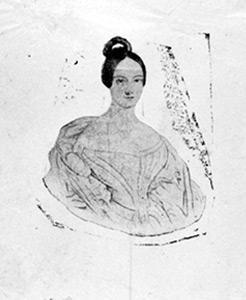Commitment to the Republic
The beginnings of the Third Republic were markedly influenced by Protestants.
Most opted for the Republic, all the more so since the Catholic Church openly favoured the re-establishment of the monarchy and rejected political democracy (Syllabus). New manifestations of piety (spectacular worship of statues, relics, fountains) shocked Protestants and republicans as a triumph of obscurantism. The bourgeoisie – which had remained Orleanist during the Second Empire – had rallied to the Republic ; and in the provinces, the Protestant communities, led by their pastor, appeared as « rural republics ».
Several intellectuals, such as Taine and Jules Favre, were attracted to Protestantism, without, however, being converted to it. Georges Sand wished her grandchildren to receive Protestant religious instruction. E. Quinet, in La Révolution (1865), written during his exile in French-speaking Switzerland, had already underlined the undemocratic nature of Catholicism and associated the future of democracy with Protestant support.
Some went even further and considered a « protestantisation » of France. E. Réveillaud published in 1878 La question religieuse et la solution protestante. Charles Renouvier, in his review Critique philosophique popularised the theme of the « protestantisation » of France as essential to the establishment of the Republic ; this occasioned the mockery of positivists like Littré who maintained that France was not religious enough and too strongly marked by the Age of Enlightenment to return to the time of Calvin.
The grateful Republic
Protestants had a decisive influence on one of the Third Republic’s great achievements : a non-denominational, free and compulsory school system. (See : Protestants and the establishment of the republican education system).
Protestants played a major part in political life and as members of the senior civil service, and as such were the target of the clerical rightwing opposition (see : Anti-Protestantism).
After Mac Mahon resigned, the government formed in February 1879 was headed by the Prime Minister, W. Waddington who was a Protestant ; 5 out of 10 government ministers were likewise Protestants : Élie Le Royer (Justice), Léon Say (Finance), Louis-Charles de Freycinet (Public Works), Admiral Jean-Bernard Jauréguiberry (Navy and the Colonies) ; 14 out of the 116 life senators elected in the early years of the Third Republic belonged to the Reformed Church. This proportion of 12% was far superior to that of the Protestant population between 1871 and 1914. The percentage of Protestants members of the government was between 6% and 8% – that is, four to six times the ratio of the Protestant population throughout the country.
The decrees of March 1880 dissolving religious orders led many Catholic senior civil servants to resign from office : from the Conseil d’État, and especially the magistracy. The governments rapidly appointed staunch republicans as their successors, amongst whom Protestants and likewise Jews.
The regime paid public tribute to Protestantism, as in the speech pronounced by Jules Ferry on the opening, in November 1879, of the Faculty of Theology in Paris :
« In modern history, Protestantism has been the first form of liberty. Our political gospel is yours also. You were partly responsible for the Revolution of 1789, of which our republic is a logical evolution : for you it means the day of irrevocable liberty. We salute you therefore as a friendly power, as a necessary ally who will fail neither the Republic, nor liberty. You can rely on us as we rely on you, and you may rest assured, gentlemen, to find with us, for ever, not only a guarantee of justice, but also our warmest sympathy. » (from Une histoire des protestants en France, Marianne Carbonnier-Burkard, Patrick Cabanel)
P. Cabanel sums up the role of Protestants in the early years of the Third Republic in the following way :
« the real place of Protestantism in the young Republic is becoming more precise : it is less a matter of physically occupying certain places than of influencing society in a cultural, ideological, and – dare we use the word ? – in a spiritual way. Protestants – whether old-time Huguenots or recent converts and fellow comrades – did not take power. But they did fulfil a fundamental function, often fulfilled at the same period by Jews in other European countries, a function typical of religious ultra-minorities. As « People » of the Book and of the Diaspora (the Huguenot Refuge), the French Protestants were long kept away from the State and more than usually relegated to the handling of monetary and cultural signs : they were translators, transmitters of ideas and influences, at a crucial time in the modernisation of their country, when, soon after the tragic lessons of 2 December and Sedan, the Republic and the concept of a school for all are taking root. At the time, innovations came from Anglo-Saxon and Protestant Northern Europe, and already, to a certain extent, from the United States. French Protestants had a foothold on the other side of the Rhine or of the English Channel, and this for several reasons : a great number of Protestants were Alsatians and numerous pastors spoke German ; many were of Swiss origin and still had family connections in Switzerland ; a certain number of marriages likewise contributed to this, as did their theological and cultural universe, which made them feel closer to Kant than to Chateaubriand. They could bring into their country innovations experienced and admired elsewhere, but without suffering from the handicap, at the time insurmountable for a French Catholic : that of a feeling of radical strangeness. » (from P.Cabanel, Les Protestants et la République, pp.59-60)
The last years of the century saw the lessening of protestant influence. Many Protestants were worried and even shocked by the markedly anti-religious trend of the regime, and a « Protestant right-wing » element began to appear. Besides, under Pope Leo XIII, the Roman Catholic Church evolved and allowed a rallying to the Republic ; a Catholic but secular elite emerged to rapidly recapture the space formerly occupied by Protestants.

